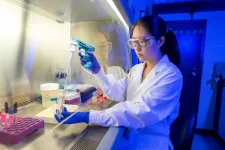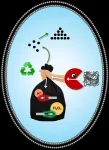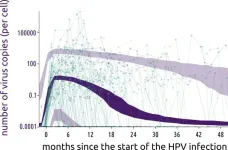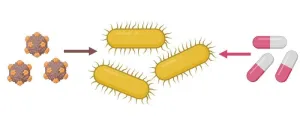(Press-News.org) In what is considered the most comprehensive post-pandemic survey of trust in scientists, researchers have found a majority of people around the world carry widespread trust in scientists — believing them to be honest, competent, qualified and concerned with public well-being.
Researchers surveyed more than 72,000 individuals across 68 countries on perceptions of scientists’ trustworthiness, competence, openness and research priorities.
The results, published in the journal Nature Human Behavior, also showed the general public’s desire for more engagement from scientists through communication and policymaking.
“This was a major collaborative study, involving dozens of labs from across the world, all of them asking the same questions to specific audiences, in their specific languages according to their own customs,” said Tim Weninger, the Frank M. Freimann Collegiate Professor of Engineering and director of graduate studies in the Department of Computer Science and Engineering at the University of Notre Dame. “This is the first time I have seen such a distributed and collaborative effort in the social sciences. Our results show that, generally, denizens worldwide do indeed trust scientists.”
Weninger is an expert in disinformation and fake news and one of 241 researchers who contributed to the study as part of the Trust in Scientists and Science-Related Populism (TISP) Many Labs project, an international, multidisciplinary consortium of researchers at 179 institutions around the world.
Researchers sought to identify levels of trust in scientists, how demographic and country-level factors impact trust and vary between countries, perceptions of scientists in societal roles and policymaking, and which issues people believe scientists should prioritize.
A challenge to a ‘popular, dominant narrative’
The study challenges a “popular, dominant narrative claiming a crisis of trust in science and scientists,” the authors said. Building on previous studies, primarily focused on attitudes in the United States and Europe, the survey also includes individuals and countries long underrepresented in research.
An overwhelming majority of respondents (83 percent) believe scientists should communicate scientific concepts and research findings with the public. More than half (52 percent) believe scientists should be more involved in policymaking.
According to the study, “higher levels of trust were found among women, older people, residents of urban (vs. rural) regions,” higher-income earners, individuals who identify as religious and those with left-leaning or liberal political views. Education also positively correlated with trust.
In most countries, however, political orientation is unrelated to trust in scientists, the study found — one of several results that provided insight into global views.
Additionally, whereas some people might assume religion and science to be at odds, the TISP study found a positive association between trust and science and religious identity.
“That was the most surprising thing to me,” Weninger said. “Religiosity positively and significantly correlated with trust in science. Science and religion are often seen as being at odds with one another. This global study shows that religiosity and trust in science are commonly held in tandem by people across the world.”
The desire for more engagement
Overall, attitudes reveal a desire among the public to see scientists engage in science communication and policymaking — advocating for policies that address specific issues such as climate change and communicating research findings to government officials and politicians.
People also want to see scientists prioritize improving public health, solving energy problems and reducing poverty. The survey showed that people generally believe the scientific community prioritizes defense and military technology above all other research goals, which was found to be a lesser priority for most respondents.
Previous studies have shown trust in science and scientists as critical to managing global crises such as the COVID-19 pandemic. Weninger and the study’s authors said the results of the TISP survey “can help scientists and science communicators better tailor their communication to different audiences” and stressed the need for international research that includes underrepresented and understudied populations.
Challenges and recommendations
While the results of the TISP study strongly challenge current narratives, the consortium noted their findings reveal some areas for concern.
Though 57 percent of global respondents believed scientists are honest, and 56 percent believed scientists are concerned with public well-being, only 42 percent believe scientists are receptive to feedback or pay attention to others’ views.
“Anti-science attitudes, even if held by only a minority of people, raise concerns about a potential crisis of trust in science, which could challenge the epistemic authority of science and the role of scientists in supporting evidence-based policymaking,” the authors stated in the study.
With that in mind, the consortium suggested scientists find ways to be more open to feedback and dialogue with public audiences, increase public science communication efforts to highlight ongoing research in public health and energy, consider ways to reach conservative groups in Western countries and consider the role of the scientist in setting priorities aligned with public values.
The survey’s full dataset is available via a comprehensive dashboard, providing insights on science-related populism, science communication behavior and public perceptions about climate change. Through the dashboard, users can explore specific data at the country level and compare results.
END
A global majority trusts scientists, wants them to have greater role in policymaking, study finds
2025-01-21
ELSE PRESS RELEASES FROM THIS DATE:
Transforming China’s food system: Healthy diets lead the way
2025-01-21
According to the study published in Nature Food, China’s current trajectory is misaligned with the United Nations Sustainable Development Goals (SDGs). The researchers assessed potential pathways for achieving the SDGs in China by transforming its food system, focusing on dietary changes, climate change mitigation, ecological conservation, and socio-economic development. “Action across all areas of the food system is required to achieve a sustainable food system and efficiently address the wide range of social and environmental ...
Time to boost cancer vaccine work, declare UK researchers
2025-01-21
UK oncology researchers have come together to write the first ever national thought leadership strategy report into cancer vaccine advances and the opportunities these present for those affected by cancer. The strategy report has been published in Cambridge University Press journal Cambridge Prisms: Precision Medicine.
Cancer vaccines hold the potential to revolutionise cancer treatment. These vaccines leverage neoantigens to activate the immune system against tumours, offering a personalised approach to combat cancer. This transformative potential is particularly significant in light of recent advancements in oncology, including ...
Colorado State receives $326M from DOE/EPA to improve oil and gas operations and reduce methane emissions
2025-01-21
The Department of Energy and Environmental Protection Agency have awarded $326 million to three Colorado State University research projects that aim to improve U.S. oil and gas operations and reduce methane emissions nationwide.
The EPA’s Methane Emissions Reduction Program is providing the funding to the CSU Energy Institute and faculty working across multiple departments in the Walter Scott, Jr. College of Engineering, with the goal of helping oil and gas operators improve operational efficiency and manage emissions. The efforts will also support activity to build an inventory of methane emissions, ...
Research assesses how infertility treatments can affect family and work relationships
2025-01-21
Infertility is a problem that affects between 8% and 12% of couples of reproductive age worldwide – for some of them, the problem interrupts a life project, which is the desire to have children and build a family. Advances in technology and medicine have made assisted reproductive treatments possible, but they can be physically and psychologically draining for the couples involved, especially because of expectations of results that may not be achieved.
The emotional impact of treatment is well documented in the scientific literature. ...
New findings shed light on cell health: Key insights into the recycling process inside cells
2025-01-21
A recent study from Tata Institute of Fundamental Research, Mumbai, India has revealed new details about how our cells clean up and recycle waste. This process, known as autophagy, is like a self-cleaning mechanism for cells, helping the cells stay healthy by getting rid of damaged parts and recycling useful components. The process involves formation of a vesicle called autophagosome, which encapsulates the cellular waste. The autophagosome then fuses with another type of vesicle called lysosome. ...
Human papillomavirus infection kinetics revealed in new longitudinal study
2025-01-21
Non-persistent human papillomavirus (HPV) infections are characterized by a sharp increase in viral load followed by a long plateau, according to a study published January 21st in the open-access journal PLOS Biology by Samuel Alizon of the National Centre for Scientific Research (CNRS), France, and colleagues.
Chronic HPV infection is responsible for more than 600,000 new cancers each year, including nearly all cervical cancers. Infection among young women is common, impacting nearly 20% of women 25 years of age. Fortunately, the vast majority of these infections ...
Antibiotics modulate E. coli’s resistance to phages
2025-01-21
In your coverage, please use this URL to provide access to the freely available paper in PLOS Biology: http://journals.plos.org/plosbiology/article?id=10.1371/journal.pbio.3002952
Article title: Chloramphenicol and gentamicin reduce the evolution of resistance to phage ΦX174 by suppressing a subset of E. coli LPS mutants
Author countries: Germany
Funding: This work was generously supported by funds from the Max Planck Society (L.P.-F.B.). L.P. was supported by the International Max Planck Research ...
Building sentence structure may be language-specific
2025-01-21
Do speakers of different languages build sentence structure in the same way? In a neuroimaging study published in PLOS Biology, scientists from the Max Planck institute for Psycholinguistics, Donders Institute and Radboud University in Nijmegen recorded the brain activity of participants listening to Dutch stories. In contrast to English, sentence processing in Dutch was based on a strategy for predicting what comes next rather than a ‘wait-and-see’ approach, showing that strategies may differ across languages.
While listening to spoken language, people need to link ‘abstract’ knowledge of grammar to ...
Biotin may shield brain from manganese-induced damage, study finds
2025-01-21
While manganese is an essential mineral involved in many bodily functions, both deficiency and excessive exposure can cause health issues. Maintaining a balanced diet typically provides sufficient manganese for most individuals; however, high levels of exposure can be toxic, particularly to the central nervous system. Chronic manganese exposure may result in a condition known as manganism, characterized by symptoms resembling Parkinson's disease, including tremors, muscle stiffness, and cognitive disturbances.
New research published in Science Signaling employs model systems and human nerve cells to show the mechanisms by which manganese inflicts damage ...
Treatment for children with obesity has lasting effect
2025-01-21
When children with obesity undergo weight-loss treatment, the effects have repercussions later in life and the risk of serious health problems and premature death is lower as they reach young adulthood. However, this is not the case for depression and anxiety, a study from Karolinska Institutet published in JAMA Pediatrics reports.
The study shows that children and adolescents who respond well to obesity treatment are less likely to develop obesity-related diseases, such as type 2 diabetes, hypertension and dyslipidaemia (abnormally high levels of fat in the blood) as young adults.
The treatment studied ...





